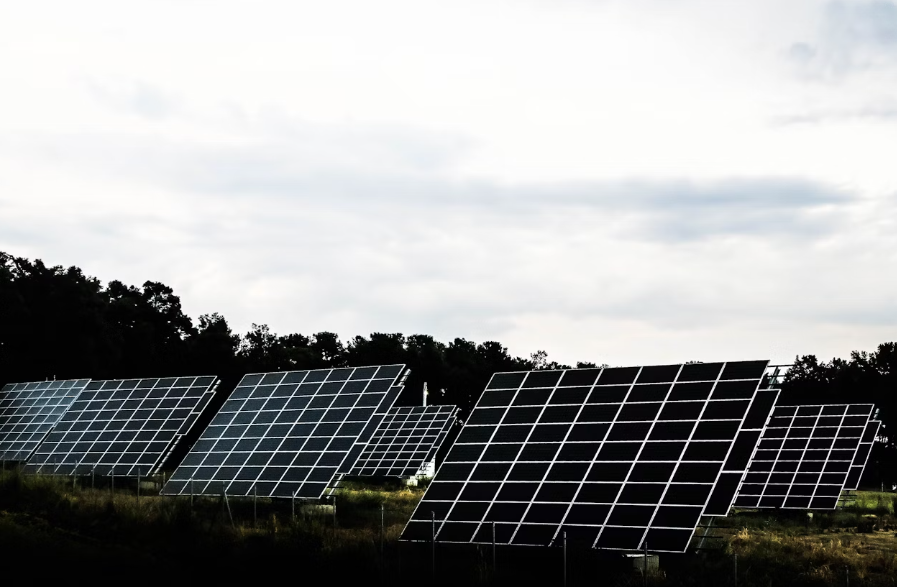Leveraging green technology doesn’t just offer benefits for the environment but also presents numerous advantages for your business.
Incorporating green technology involves reducing negative environmental impacts in your workplace, which can result in an improved working environment.
Choosing eco-friendly technology is a responsible choice that can bring various benefits, including cost savings and enhanced productivity.
Given these advantages, integrating a platform into your business operations is a worthwhile consideration. Below are the six main benefits of green technology for your business.
1: Help You Save Energy and Water
Numerous options are available to decrease energy consumption within your workplace. For instance, you can opt for LED lighting instead of fluorescent bulbs for exit signs.
Additionally, replacing HVAC filters not only conserves energy but also extends the lifespan of your system. There are various ways to incorporate energy efficiency measures.
It’s essential to remember to switch off lights when they’re not in use, as this simple step can contribute to reducing monthly operational expenses.
Technology offers opportunities to minimize water consumption in your workplace. Areas such as drinking fountains, and bathrooms typically account for significant water usage.
Installing efficient toilets, outdoor timing systems, and aerated faucets can effectively lower monthly water bills. Some entrepreneurs opt for motion-sensing faucets, which automatically shut off when no movement is detected.
One of the most prominent sustainable technology examples, sensor-based appliances has enabled many businesses to reduce water usage by over fifty percent.
2: Reduces Waste
Recycling is a remarkable green technology that transforms waste into a valuable resource.
It plays a crucial role in waste reduction while facilitating the recovery of raw materials for the creation of new products.
Recovered materials not only decrease the volume of solid waste sent to landfills but also diminish the necessity for continuous extraction of new raw materials, thereby conserving natural resources.
An illustration of the positive impact of this green technology is cardboard recycling, which significantly reduces the demand for cutting down new trees.
Both businesses and the environment reap benefits from this practice: cardboard is diverted from landfills, and companies can generate profit through recycling initiatives.
3: Lowers the Expenses of a Business
Although the initial procurement costs of green technologies may be substantial, in most instances, these investments usually pay for themselves through the savings and competitive advantages they offer over time.
This is primarily due to the inherent efficiency of green technology, which optimizes energy and resource usage while also introducing new capabilities.
For example, even though the initial expenses of buying and setting up solar panels can be considerable, both businesses and households can achieve substantial cost reductions over time due to lower electricity bills.
Buildings equipped with solar panels not only benefit the environment by generating significant electricity but also enjoy long-term financial advantages as the savings from reduced energy expenses offset the initial procurement investment.
4: Improves Our Agricultural System
Green technologies are pivotal in transforming agriculture, especially in developing more environmentally sustainable methods for food production.
Efficient water usage is a significant concern in agriculture due to the scarcity of freshwater on Earth. For example, hydroponics is a green technology that substantially reduces water consumption compared to conventional farming methods.
Additionally, sustainable water purification techniques represent another promising innovation aimed at addressing water scarcity in agriculture.
These methods have the potential to revolutionize farming practices and tackle broader challenges related to freshwater resources.
Integrated pest management is another notable eco-friendly strategy embraced in agriculture, involving the introduction of natural predators to manage pests instead of relying heavily on pesticides.
5: Having a Better Workplace
Factors such as moderate climate and air quality can cause an employee to call in sick, potentially disrupting company productivity.
Installing effective air filtration systems in HVAC units, air purifiers, and similar devices can provide employees with a safer and healthier work environment. Working in such conditions can improve morale and ultimately enhance productivity.
6: Attract Eco-Conscious People
Many individuals are highly aware of their environmental surroundings. According to the Green Business Bureau, numerous customers actively seek out eco-conscious companies to do business with.
When the public is aware that your company prioritizes environmental sustainability, it can generate leads and increase sales. For instance, hotels that promote water-saving fixtures or solar panels often attract a large customer base.
Bonus: More Efficiency
Numerous green technologies enhance productivity in businesses.
For example, accessing digital documents on the Cloud is far more efficient than searching through physical filing cabinets.
Messaging systems and mobile devices contribute to improved employee performance.
Transitioning to a digital platform can lead to a significant increase in productivity, with certain industries experiencing up to a 25% boost.





